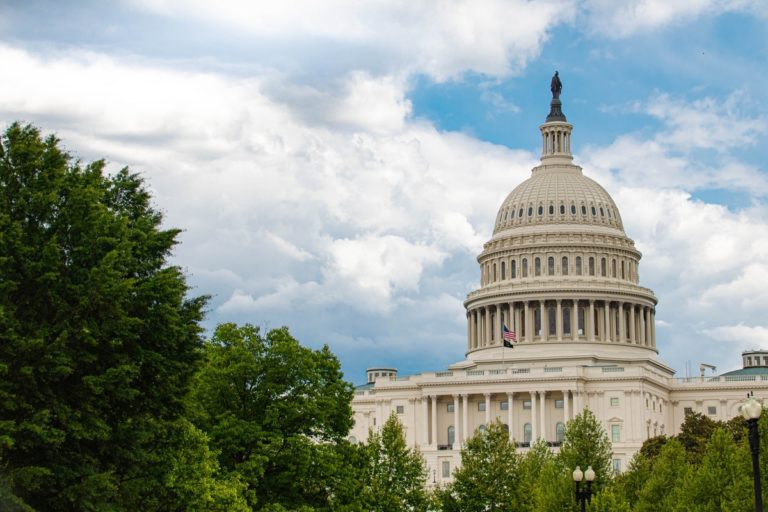Below are summaries from Arbor Investment Committee members regarding different asset classes. If you have specific questions about any of them in general or how they might impact your portfolio or financial plan, please reach out to us.
Arbor Capital Management News: April 2020
-
Dislocation
Covid-19 and the responses from government officials have changed our behaviors dramatically. The economic fallout has created dislocations in markets, politics and culture.
The reaction from the US Federal Reserve and Congress has been swift and massive in scope. The actions are designed to assuage not just the US, but the world as the Fed builds on QE4 that started in fall of 2019.
The covid-19 damage to oil demand compounded with the OPEC announcements on the supply side have caused a spectacular drop in front month oil contracts for delivery, pushing them into negative territory for the first time in history. This is a major dislocation as some ETF products using this front contract are ceasing operations.
As you read on, you may note the tone of dislocations referenced in consumer spending, regulatory consequences and market structure. All of these are being magnified in the current environment.
-
Equities
It was an interesting first quarter of 2020. Most of the companies we own had solid quarters in Q4 ‘19, as well as the few that have reported Q1 ’20 results during the first couple of weeks of April.
Companies were commenting about a virus in China while reporting Q4 earnings, but none had any idea the magnitude once it was transmitted to the rest of the world. In late February into March, it became clear the virus would cause economic damage. Because stock market trading is being driven by algorithms, levered hedge funds and retail, when “fire” gets screamed in a crowded theatre you get a 30% drop in the SPY in a short couple of weeks after of a slow steady rise in stocks with little volatility.
After the January equity rebalance, we now have 48 stocks in our portfolios, and they are going to be put to the test. We are large fans of dividend paying companies and so far, only a few have cut the dividend (this may increase after publishing). Nearly a dozen other companies that reported so far in late March and early April remain firmly committed to the dividend.
The key point now is we are happy owning the same 48 stocks now as we did three months ago. In another three months’ time we hope to stay the same thing. Secular growth themes like 5G are still marching ahead on schedule for QCOM, TSM and VZ. Cashless payments are going to continue to grow for PYPL. DIS streaming service will likely be a huge hit. PM will continue to sell the new iQos product. Are we nervous about people going back to malls (SPG) or buying cars (GM)? Yes. If they do not, dividends will be cut. That being said, we try to find best-of-breed companies that trade a significant discount to historical levels anyway.
The S&P 500 is down about 13.4% from its all-time in February, and down about 9% YTD, and trades back to levels last seen just 10 months ago in June. Some consumer banks are offering insight into spending slowdowns such as Bank of America discussing total spend by customers being down about 15% and Citi noting credit card spend has declined by 30%. US Bank says consumer merchant payments are down 50-60% and commercial down 30-40%. JPM does not provide comparable data but states it took additional loan losses in Q1 and is now modeling for worse economic conditions based on information for the first two weeks of April. Most non-financial companies are talking about a gradual re-opening of the economy in June as part of their planning.
-
Fixed Income Market
The first quarter of 2020 saw fixed income markets trade higher in January and February along with just about everything else. As covid-19 spread from Wuhan and fears of unknown contagion gripped the planet, the stock market sold off sharply.
Fixed income markets diverged significantly with bids supporting only the safest of fixed income securities, namely US treasuries and CDs. Everything else in the bond market sold off to varying degrees with stock like speed. Much was reported in the news regarding how dysfunctional the bond market was behaving as bid/ask spreads widened to spreads not seen since 2013 and for a brief period 2009. We were not too concerned with this as this is to be expected given the infrastructure of the present-day bond market. The Fed and US Treasury are the only significant market makers in the bond market today. Is this desired? We can debate that all day but regardless of how we want markets to function we cannot deny how they are currently built to function and must make investment decisions accordingly. In short, with the explosion of fixed income products that trade on equity exchanges as stocks do and the elimination of trading desk inventories through regulation, there should be little wonder as to why bonds trade with the volatility we have seen since the implementation of Dodd/Frank. Not only has the infrastructure supporting the bond market changed; the nature of bond investors has changed as well. No longer are bonds held, bought or sold between large institutions who have long time horizons, governing boards with Investment Policy Statements. There are fewer seasoned old duffers and grannies who are content to collect interest until maturity date. Today’s bond buyer makes buy/sell decisions through an equity lens.
-
REITs: Real Estate Investment Strategies
Through the last couple of recessions, healthcare REITs have been a defensive safe haven. However, due to covid-19 pandemic, they haven’t provided much shelter. Senior housing panic and cancellations of non-essential medical, surgical, and dental procedures are noted as the leading causes. This time, the stay at home winners are the more growth-oriented subsectors or data centers and cell towers. E-commerce traffic has appeared to help the warehouses hold up fairly well. All the recent happenings have only piled on to the demise of retail. Lodging and hospitality REITs have been hard hit. Dividend cuts or suspensions have been piling up over the past several weeks. Even this isn’t going to save some companies, and they will likely end up filing for bankruptcy, particularly the high debt carriers.
-
Alternative Asset Class
We increased diversification in our alternative asset class, adding a fund that aims to generate positive absolute returns in all market environments, while shrinking exposure to managed futures. We also expanded our mortgage-backed security offering and rounded out the bitcoin (GBTC) position in mid-March to get our full position in the flagship cryptocurrency. Although the alternative asset class is negative YTD, it did dampen volatility in most portfolios.












